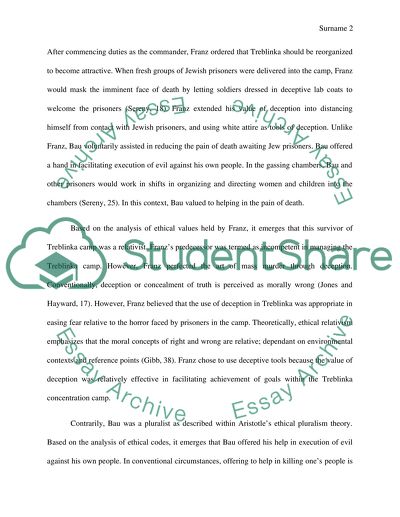The Value of Deception and Concealment of Evil in the Book Into That Essay. Retrieved from https://studentshare.org/literature/1665706-philosophy-intrioduction-to-ethicsessay-on-the-personal-values-of-the-characters-discussed-in-into-that-darkness
The Value of Deception and Concealment of Evil in the Book Into That Essay. https://studentshare.org/literature/1665706-philosophy-intrioduction-to-ethicsessay-on-the-personal-values-of-the-characters-discussed-in-into-that-darkness.


